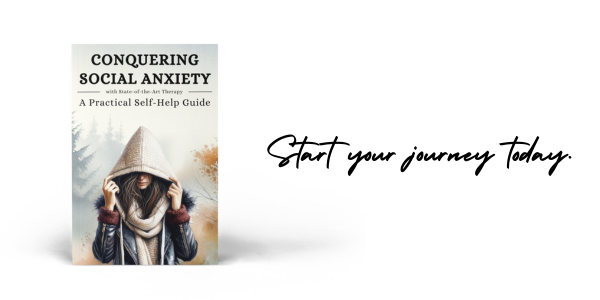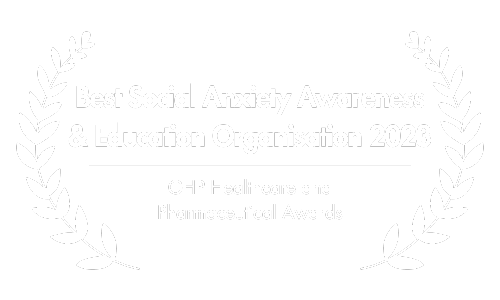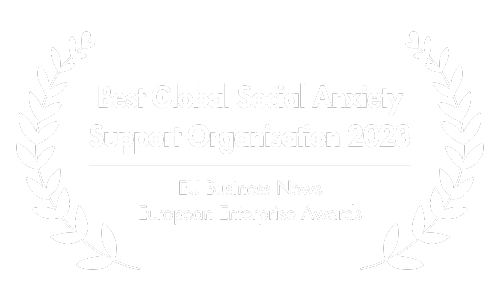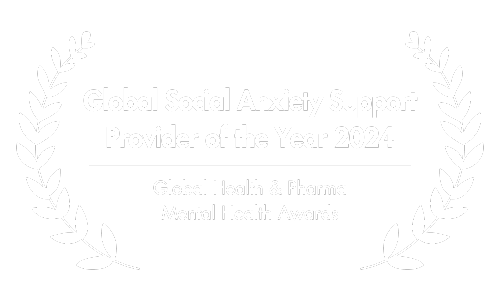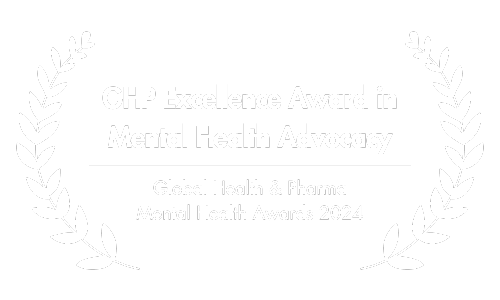Unfollow Social Anxiety: Practical Tips for a Healthier Social Media Use
This article contains a recommendation for an online therapy provider that helps with social anxiety. If you purchase product services through this link, you will receive a significant discount and we will receive a commission.
In today’s world, social media is as much a part of our daily routines as eating or sleeping.
These platforms promise connection, entertainment, and information at our fingertips.
However, for many of us, navigating the digital landscape comes with its own set of challenges, especially when it comes to mental health.

Among these, social anxiety – a condition that affects many millions worldwide (Harvard Medical School, 2007) – can be significantly impacted by our online habits.
The question then arises: How can we interact with social media in a way that supports our well-being rather than undermining it?
Recent research presents a complex picture, suggesting that while social media offers opportunities for connection and support, it can also lead to increased feelings of anxiety and inadequacy for some users.
This duality is especially pertinent for individuals experiencing social anxiety, who may find social media both a sanctuary and a battlefield.

Understanding this relationship is crucial in developing strategies that allow for healthier engagement with digital platforms.
The aim of this article is straightforward: to provide you with evidence-based, actionable advice for navigating social media without letting it exacerbate your social anxiety.
Whether you’re looking to adjust your usage habits, foster healthier online interactions, or simply find a balance that feels right for you, the following tips and insights are designed to empower you in your digital life.
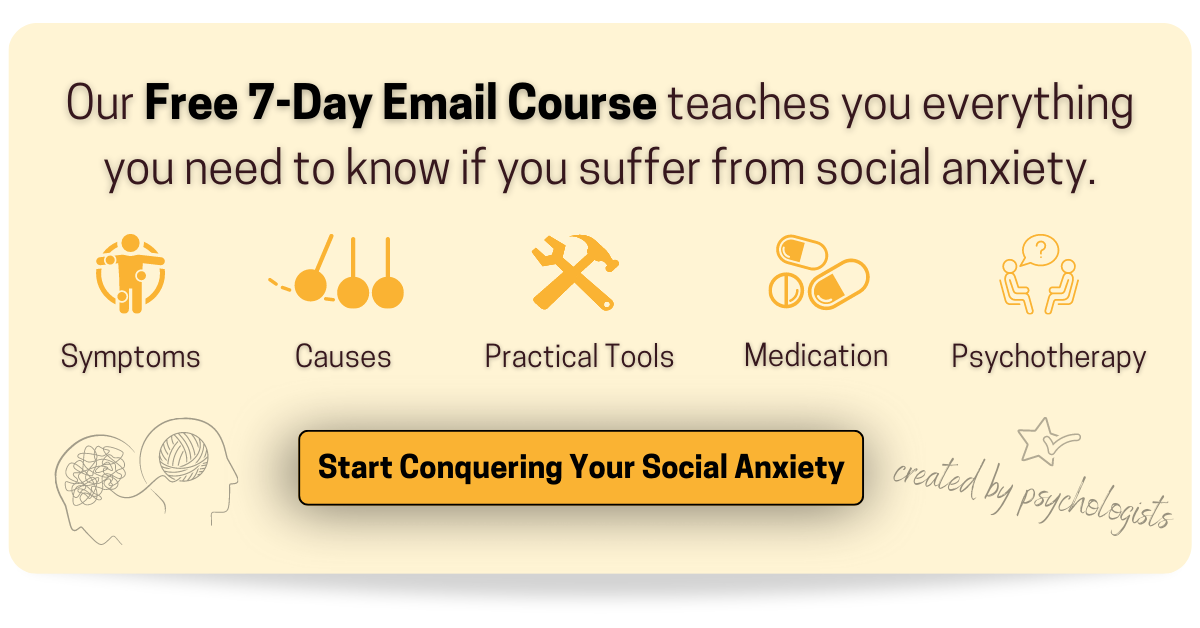
The Impact of Social Media on Social Anxiety
The relationship between social media and social anxiety is a topic of increasing interest among researchers and mental health professionals.
Studies have highlighted a paradoxical effect: while these digital platforms can serve as tools for enhancing social connections and providing support, they also have the potential to trigger or exacerbate anxiety and depression among their users.
A comprehensive review by Karim et al. (2020) sifted through 16 studies to examine the effects of social media usage on mental health outcomes, particularly anxiety and depression.

This review revealed that social media could indeed have positive impacts, such as reducing feelings of loneliness and improving social support. However, it also underscored significant limitations in the current body of research.
These findings suggest a nuanced understanding of social media’s influence on mental health, indicating that while some users may experience benefits, others might find their anxiety worsened by their online activities.
Similarly, Ulvi et al. (2022) conducted a systematic review and meta-analysis focusing on the link between social media use and mental health issues like depression.
Their work further confirmed the complex relationship between social media engagement and mental well-being, highlighting how excessive or unhealthy usage patterns – particularly among vulnerable populations – could correlate with negative mental health outcomes.
Yet, the study also pointed to the potential of social media platforms to foster a sense of community and support, underscoring the dual-edged nature of digital social interaction.

Carruthers et al. (2019) offered a unique perspective by exploring how individuals with varying levels of social anxiety experience online versus offline interactions.
Their findings challenge the notion that social media is a universally safe haven for those with social anxiety.
The study illustrates that the same cognitive and behavioral processes that fuel face-to-face social anxiety can also manifest in online environments, suggesting that the digital realm might not be an anxiety-free zone for everyone.
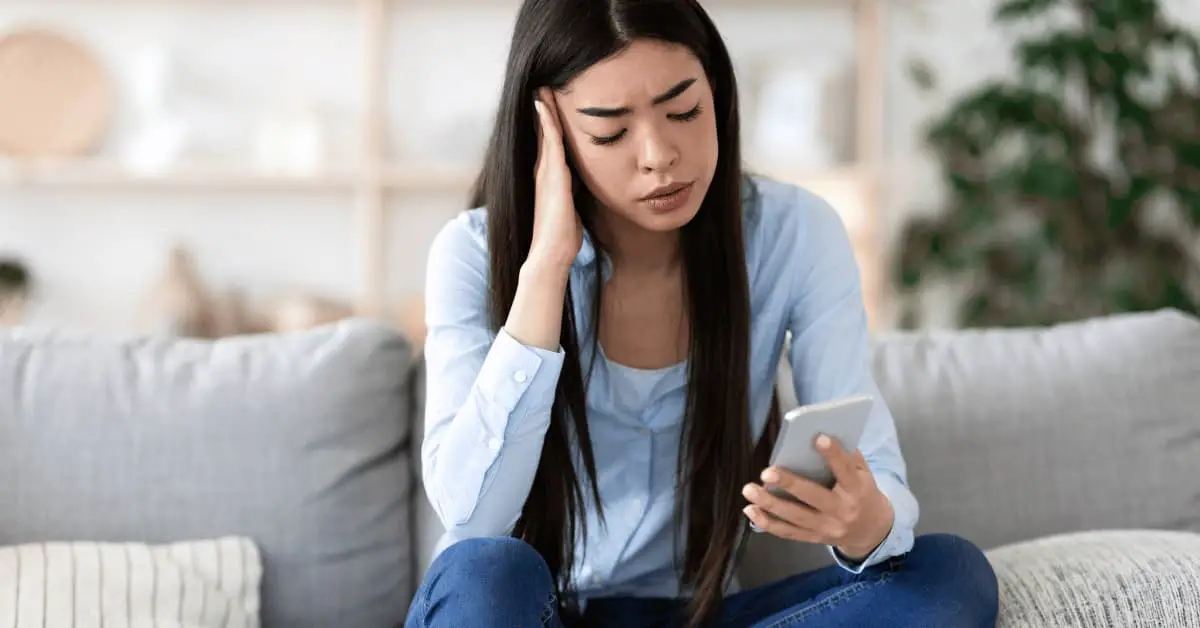
These research efforts collectively illuminate a critical message: the impact of social media on individuals with social anxiety is far from straightforward.
It varies widely among users, influenced by factors such as the nature of their social media use (active vs. passive), the types of platforms engaged with, and personal predispositions towards anxiety.
To dive deeper into the relationship between social media use and social anxiety, you can click here to read our article which highlights further research findings.
Here, we’ll explore practical strategies aimed at helping you navigate social media in a way that supports your mental health and well-being.
Comprehensive Tips for Healthy Social Media Use
Navigating the complexities of social media while managing social anxiety requires a thoughtful approach.
Here are evidence-based strategies designed to help you foster a healthier relationship with digital platforms.

A. Mindful and Intentional Use
Reflect on Usage Patterns
Start by observing your social media habits. Are you more of an active participant or a passive scroller?
Research, such as the study by (Lai et al., 2023), suggests that active engagement (posting, commenting) can have a more positive impact on social anxiety by improving communication skills and fostering a sense of community.
On the other hand, passive use (endlessly scrolling without interacting) can increase feelings of isolation and anxiety.
By being more mindful of how you use social media, you can start to make intentional changes that promote better mental health.

Implement Digital Detoxes
Taking regular breaks from social media isn’t just beneficial – it’s essential for your mental health.
By intentionally setting aside specific times of the day or choosing particular days each week to disconnect, you give yourself the opportunity to recharge and refocus.
This conscious decision to step away from the digital world helps alleviate the information overload and diminishes the relentless cycle of social comparison that often exacerbates feelings of anxiety.
Manage Notifications
The barrage of notifications from social media apps not only keeps you in a constant state of alert but can significantly spike your anxiety levels.
By tailoring your notification settings to only alert you about messages and updates that truly matter, you take a significant step towards reclaiming your peace of mind.
This deliberate filtering minimizes distractions and curtails the reflexive habit of reaching for your phone, granting you greater command over your social media engagement.
Additionally, consider periodically reviewing and further refining your notification preferences.
This ongoing adjustment process can help you gradually acclimate to a quieter phone environment, making it easier to focus on the present moment and engage more deeply with the world around you.
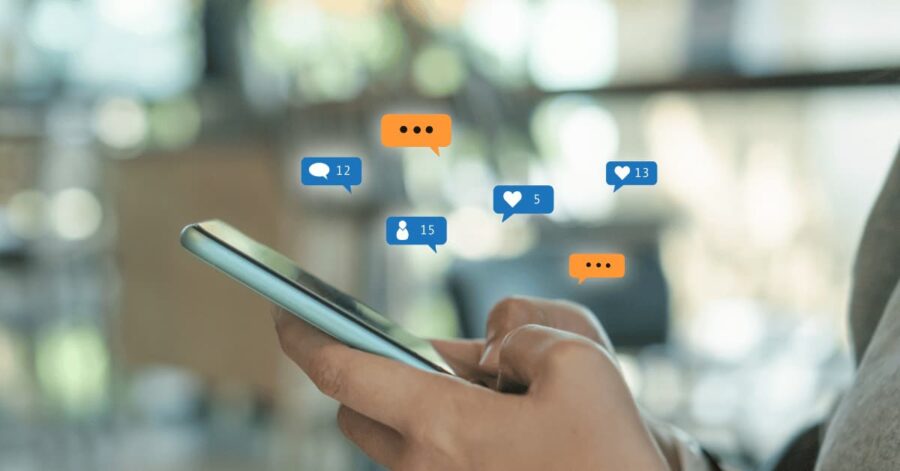
B. Enhancing Online Interactions
Curate Positive Content
The content you consume on social media significantly influences your mood and outlook.
Proactively follow accounts that not only inspire but also challenge you to grow and think differently. Diversity in your feed introduces you to new ideas and perspectives, enriching your online experience.
Beyond individual accounts, engage with positive online communities.
These spaces can offer support, laughter, and a sense of belonging, amplifying the positive impact of your social media use. They enable meaningful interactions, making your time online more rewarding.
Periodically review your social media feeds to ensure they align with your current interests and emotional well-being.
This ongoing curation is key to maintaining a social media environment that consistently serves as a source of motivation and positivity.

Engage More Actively
Transform your social media experience by shifting from passive scrolling to active engagement.
Sharing your thoughts on posts, contributing to discussions, and connecting with others over shared interests not only enriches your online experience but also combats feelings of loneliness.
This shift towards meaningful interaction fosters a sense of community and belonging, which can significantly enhance your mental well-being.
Start small by setting a goal to comment on a post or join a conversation once a day, gradually increasing as you feel more comfortable.
This approach helps build confidence in your online voice and can lead to more authentic connections.
Remember, the quality of your interactions often matters more than the quantity. By engaging in a way that feels genuine and meaningful to you, you’ll naturally find a more fulfilling and supportive social media environment.
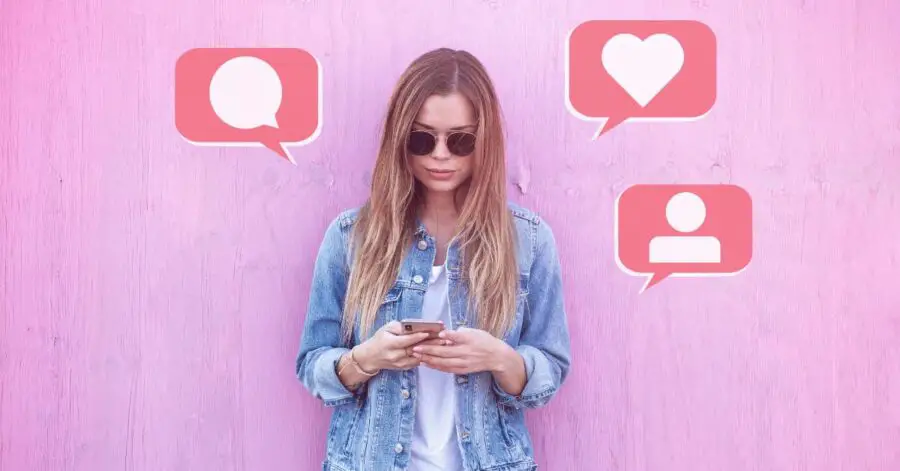
Participate in Gratitude and Positive Challenges
Dive into the world of social media challenges and campaigns that celebrate positivity, gratitude, and growth.
By participating, you not only enrich your feed with uplifting content but also reframe your perspective towards appreciating life’s blessings.
This practice encourages a gratitude-focused mindset, transforming how you view daily experiences and interact with others online.
Quickly joining a weekly gratitude challenge or sharing positive moments can make a significant difference in cultivating a healthier, more optimistic online environment for yourself.

C. Building and Maintaining Healthy Boundaries
Set Clear Usage Limits
Setting clear boundaries for your social media use is essential for maintaining digital well-being. Commit to a daily or weekly screen time limit that supports your lifestyle and mental health goals.
Utilizing screen time tracking tools or apps can provide insights into your habits and help you adhere to these limits more faithfully.
Embrace these boundaries not as restrictions but as steps towards a more mindful, balanced online life.
Periodic adjustments based on your experiences and needs can further personalize and optimize your digital engagement.

Establish Content Sharing Guidelines
Mindful sharing on social media involves a delicate balance between openness and privacy.
Reflect on the nature of what you share, celebrating personal milestones and positive moments while considering the boundaries of your comfort zone.
Developing a set of personal guidelines for your posts can guide you in maintaining this equilibrium, ensuring you share in a way that uplifts both you and your audience without compromising your privacy.
This strategy not only aids in cultivating a positive online persona but also reinforces your sense of control over your digital footprint.
Limit Stressful Engagements
Navigating social media wisely means knowing when to engage and when to withdraw. It’s natural to encounter debates or negative interactions, but prioritizing your mental health is crucial.
Give yourself permission to exit conversations that escalate stress or discomfort. By consciously choosing to participate in discussions that are constructive and align with positive values, you safeguard your peace of mind.
This approach not only enhances your online experience but also contributes to a healthier, more supportive digital community.
Remember, the quality of your social media life significantly depends on how you manage these interactions.
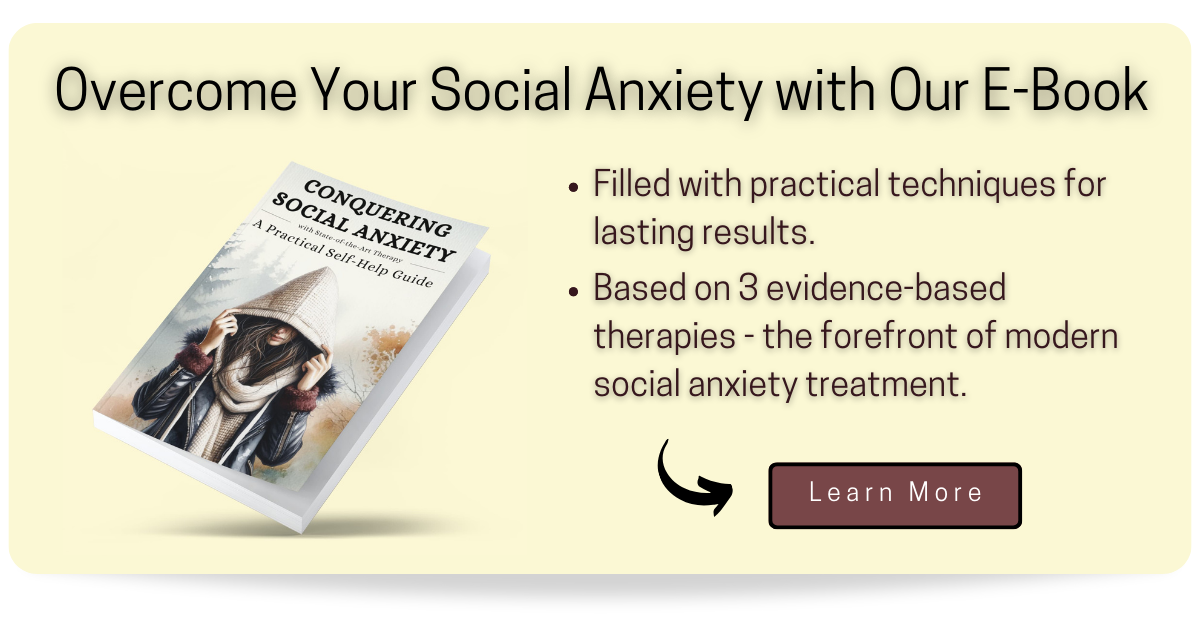
D. Fostering Real-World Connections and Skills
Promote Real-Life Interactions
Leverage social media to enrich, not overshadow, your real-life interactions.
It’s a powerful tool for discovering and organizing face-to-face meetups with friends you’ve met online or finding local clubs and groups that resonate with your interests.
Encourage making plans for coffee, attending workshops, or joining community events together.
These real-world interactions can deepen the bonds formed online, adding a valuable dimension to friendships and interests cultivated through social media.
Practice Mindfulness in Digital Interactions
Integrating mindfulness techniques into your social media routine can transform your online experience, grounding you in the present and mitigating anxiety.
Consider adopting practices such as taking a few deep breaths before logging in, pausing to reflect on your intentions, or noticing your emotional responses to different posts.

After using social media, take a moment to assess how the session impacted your mood and overall well-being.
These mindful pauses encourage a more intentional and reflective approach to digital interactions, helping you cultivate a healthier relationship with social media.
By becoming more attuned to your reactions and feelings, you can make more conscious choices about how to engage online, leading to a more positive and less stressful social media experience.
To learn more about mindfulness, including how it can help combat social anxiety, you can click here to read our introductory guide.
Improve Your Digital Literacy
Enhancing your understanding of social media’s inner workings, from algorithms to privacy settings and managing your digital footprint, is key to navigating these platforms with confidence.
By demystifying these aspects, you can take control of your online experience, making informed decisions that protect your privacy and security.
This knowledge not only minimizes anxiety over online vulnerabilities but also enables you to engage with social media more effectively and safely.
Encourage regular updates on digital literacy to stay ahead of changing technologies and safeguard your online presence.
Empowered with this understanding, you’ll find it easier to create a positive, secure, and enjoyable social media environment.

E. Managing Exposure and Reactions
Avoid the Comparison Trap
Learn to identify and mitigate the harmful effects of social comparison on social media.
Shift your focus towards personal growth and celebrating your own achievements, rather than measuring yourself against others.
Strategies such as practicing gratitude for your unique journey, setting personal goals, and celebrating small victories can help redirect your attention from comparison to self-appreciation.
This mindset change not only enhances your self-esteem but also transforms how you interact with social media, making it a platform for inspiration rather than a source of envy.

Cultivate Conscious Scrolling Habits
Embrace a mindful approach to navigating your social media feeds.
Take the time to periodically assess your emotional responses as you scroll, actively choosing to interact with content that uplifts and enriches your well-being.
This practice of conscious scrolling encourages you to become more aware of how different types of content affect your mood and stress levels, empowering you to make choices that enhance your online experience.
By fostering this habit, you not only protect your mental health but also curate a social media environment that supports positivity and personal growth.

Connect with Empowering Online Communities
Seek out and immerse yourself in online communities that provide support, empathy, and understanding.
These digital spaces can be a lifeline for individuals managing social anxiety, offering a platform where experiences are shared, advice is given, and genuine connections are made.
Participation in such groups can significantly diminish feelings of isolation, as you discover others who navigate similar challenges.
Encouraging engagement with these supportive networks not only aids in coping with social anxiety but also contributes to building a healthier, more resilient online ecosystem.
Through these communities, you can find not just solace but also strategies and friendships that enrich your journey towards well-being.
F. Seeking Support and Professional Guidance
Professional Help for Social Anxiety
For individuals grappling with intense social anxiety, seeking professional assistance is essential.
The complexity and impact of severe social anxiety on one’s life necessitate tailored guidance and support, which can only be provided by a mental health professional.

Engaging with a therapist can help you develop effective coping strategies, enhance your social skills, and work towards overcoming the hurdles posed by social anxiety.
Work Through Our Practical eBook
For readers seeking to delve deeper into therapeutic strategies and practical exercises for managing social anxiety, our ebook, “Conquering Social Anxiety: A Practical Self-Help Guide“, offers a wealth of resources and is highly recommended.
BetterHelp: Online Therapy Access
BetterHelp offers an accessible path to professional mental health support, specializing in a range of issues including social anxiety.
By signing up through our link, you will receive a 50% discount on your first month of therapy.
This platform connects you with licensed therapists via messaging, phone, or video calls, providing flexibility and convenience for those seeking help.

BetterHelp‘s personalized approach ensures you’re matched with a therapist who can address your specific needs, facilitating a journey towards improved mental well-being.
Conclusion
Navigating social media doesn’t have to feel like walking through a minefield of anxiety triggers.
With the right strategies, it’s possible to transform your digital interactions into sources of joy, connection, and support.
The key lies in mindful engagement, setting healthy boundaries, and remembering the value of face-to-face connections in our increasingly digital world.

By reflecting on your social media habits, curating your feed to suit your emotional and mental needs, and engaging in meaningful interactions online, you can create a more balanced and fulfilling digital experience.
Remember, it’s crucial to recognize when social media starts to have a negative impact on your well-being and to feel empowered to take a step back or seek professional support when needed.
Experiment with the strategies shared, find what works best for you, and remember that managing social anxiety in a digital age is a journey, not a destination.
Lastly, we invite you to sign up for our free 7-day email course on managing social anxiety.
This course is designed to provide you with essential information on symptoms, diagnostic criteria, causes, types, medication, therapy, and practical tips, offering a comprehensive introduction to navigating social anxiety.

Carruthers, S. E., Warnock-Parkes, E. L., & Clark, D. M. (2019). Accessing social media: Help or hindrance for people with social anxiety?. Journal of experimental psychopathology, 10(2), 2043808719837811. https://doi.org/10.1177/2043808719837811
Harvard Medical School, 2007. National Comorbidity Survey (NCS). (2024, February 14). Retrieved from https://www.hcp.med.harvard.edu/ncs/index.php . Data Table 2: 12-month prevalence DSM-IV/WMH-CIDI disorders by sex and cohort
Karim, F., Oyewande, A. A., Abdalla, L. F., Chaudhry Ehsanullah, R., & Khan, S. (2020). Social Media Use and Its Connection to Mental Health: A Systematic Review. Cureus, 12(6), e8627. https://doi.org/10.7759/cureus.8627
Lai, F., Wang, L., Zhang, J., Shan, S., Chen, J., & Tian, L. (2023). Relationship between Social Media Use and Social Anxiety in College Students: Mediation Effect of Communication Capacity. International journal of environmental research and public health, 20(4), 3657. https://doi.org/10.3390/ijerph20043657
Ulvi, O., Karamehic-Muratovic, A., Baghbanzadeh, M., Bashir, A., Smith, J., & Haque, U. (2022). Social Media Use and Mental Health: A Global Analysis. Epidemiologia (Basel, Switzerland), 3(1), 11–25. https://doi.org/10.3390/epidemiologia3010002
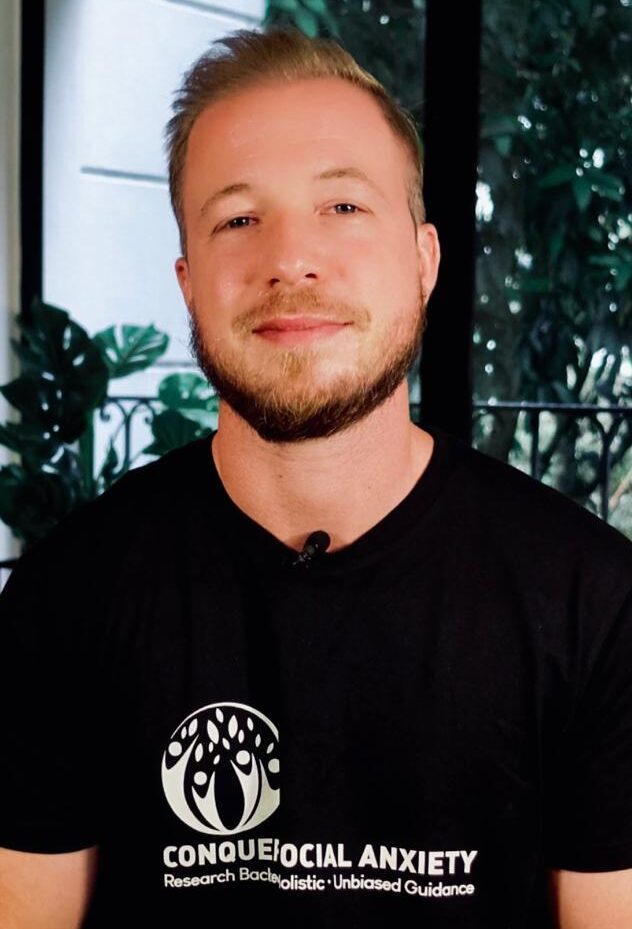
About the Author: Martin Stork
Martin is a professional psychologist with a background in physical therapy. He has organized and led various support groups for people with social anxiety in Washington, DC and Buenos Aires, Argentina. He is the founder of Conquer Social Anxiety Ltd, where he operates as a writer, therapist and director. You can click here to find out more about Martin.
